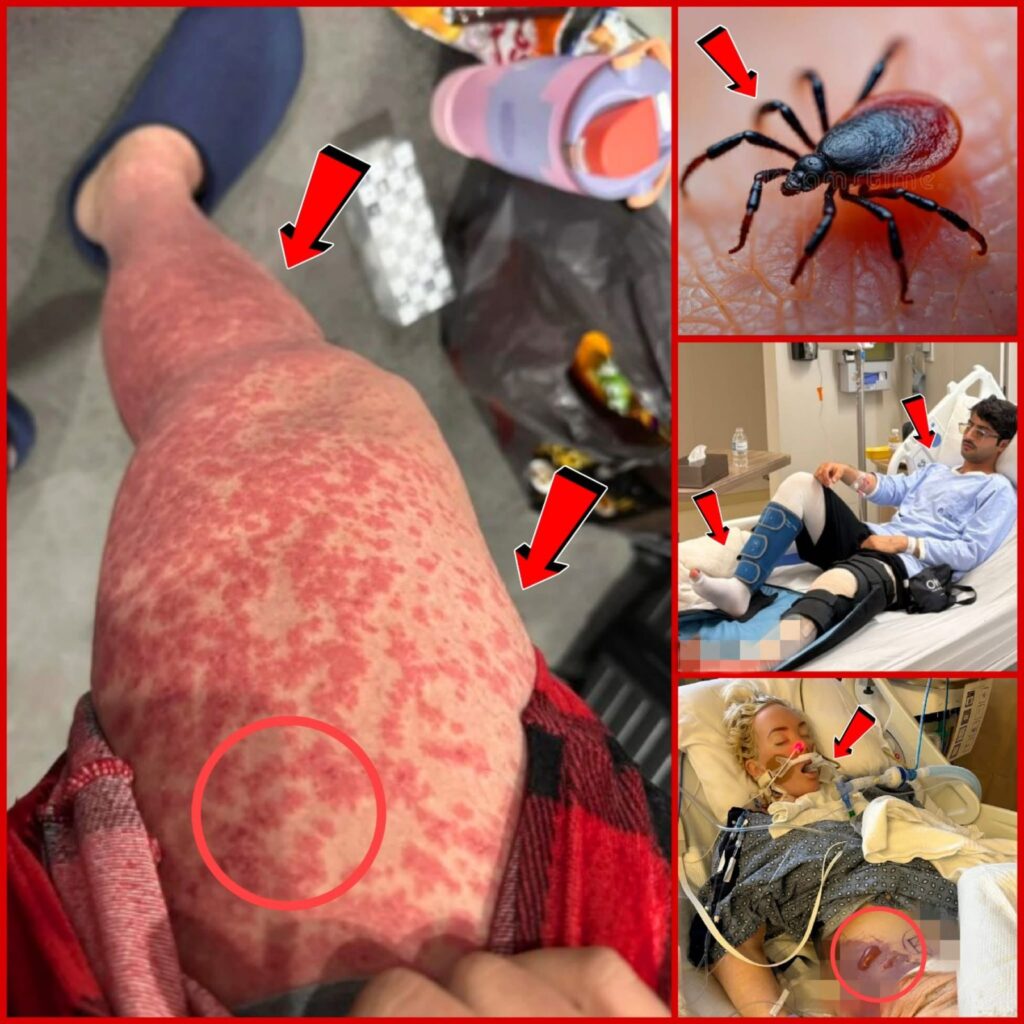The Silent Threat of Tick-Borne Illnesses: A Growing Health Concern
The Silent Threat of Tick-Borne Illnesses: A Growing Health Concern

Tick bites may seem harmless at first glance, but they can trigger severe and sometimes life-threatening complications. The images circulating online highlight the alarming consequences of untreated or misdiagnosed tick-borne diseases.
Early Signs and Symptoms
A small tick bite can lead to a red rash, fever, muscle aches, and fatigue. In some cases, the rash spreads across large areas of the body, as shown in the picture of a patient’s swollen, red, and blotchy leg. These symptoms can easily be mistaken for allergies or viral infections, delaying critical treatment.
Dangerous Complications
If left untreated, tick-borne infections such as Lyme disease, Rocky Mountain spotted fever, or other bacterial illnesses can escalate quickly. Patients may experience:
-
Severe skin rashes and inflammation
-
Joint pain and swelling
-
Neurological issues (confusion, seizures, paralysis)
-
Organ failure in advanced stages
The photos of patients hospitalized and connected to machines underscore how serious these conditions can become. What begins as a simple outdoor encounter with a tick can spiral into a medical emergency.
Awareness and Prevention
Doctors stress the importance of early detection and immediate medical care if symptoms appear after a tick bite. Preventive steps include:
-
Wearing protective clothing in wooded or grassy areas
-
Using insect repellents with DEET or permethrin
-
Checking your skin and clothing for ticks after outdoor activities
-
Seeking medical attention at the first sign of unusual rashes or flu-like symptoms
The Bottom Line
Tick-borne illnesses are on the rise globally. What may start as a small bite can lead to severe health consequences if ignored. Awareness, prevention, and timely treatment are the strongest defenses against these silent but deadly threats.


